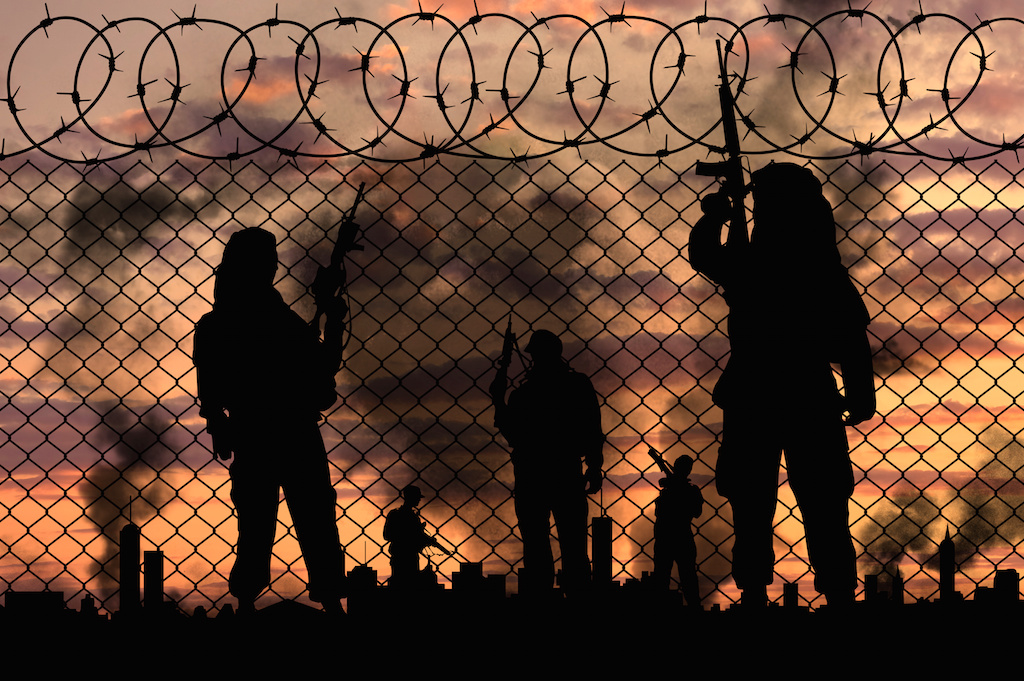By John Ubaldi
Columnist, In Homeland Security
Note: The opinions and comments stated in the following article, and views expressed by any contributor to In Homeland Security, do not represent the views of American Military University, American Public University System, its management or employees.
The world became aware of ISIS in 2014, but the group’s origins pre-date the Iraq War, when Jordanian-born Iraqi militant Abu Musab al-Zarqawi became the force behind the group’s predecessor, al-Qaeda in Iraq (AQI).
Al-Zarqawi was radicalized and reinvented himself in a Jordanian prison in the 1990s from a basic street thug into a ruthless terrorist. After his release, he tried to join al-Qaeda in Afghanistan, but was told he was too extreme even for that organization.
Al-Zarqawi’s AQI and Al-Qaeda Differ on Strategy
Al-Zarqawi’s AQI and al-Qaeda also differed in their approach and intensity. Al-Zarqawi acted with extreme viciousness and violence, which alienating the Sunnis. The main al-Qaeda leadership wanted a slower approach. Ultimately, the strategy pursued by al-Zarqawi forced the “Sunni Awaking,” which introduced a surge of U.S. combat forces into Iraq, an operation that ultimately led to killing al-Zarqawi in 2006.
Over the next few years, after the stabilization in Iraq by U.S. forces, AQI became irrelevant. However, two strategic decisions by the United States would change the trajectory of AQI and cause it to metastasize as the Islamic State in Iraq and Syria (ISIS).
US Strategic Decisions Had Ramifications
The first U.S. strategic decision was a power-sharing agreement, brokered in 2010, which reappointed Nouri al-Maliki as Iraqi Prime Minister, even though he had lost the parliamentary election to a predominately Sunni coalition. That decision had consequences: It undermined the tenuous nature of Iraq’s fragile democracy and further disenfranchised the Sunni minority.
Al-Maliki consolidated power and began a total reorganization of the Iraqi military. He purged all competent, U.S.-trained commanders and replaced them with less experienced personnel whose only loyalty was to him.
The other strategic decision by the United States was withdrawing all combat forces from Iraq, which left the Sunni minority vulnerable. This move handed all security to the Iraqi security forces (ISF), a group that was unprepared to handle such a monumental task. Almost immediately, civil war ensued.
Al-Maliki Consolidates Power at the Expense of the Sunnis
Both U.S. decisions allowed al-Maliki to further consolidate power. He went after and oppressed the Sunni minority, forcing his Sunni Deputy Vice President, Tareq al-Hashemi, into exile in Jordan. Al-Maliki arrested anyone who threatened his power base.
With this change in governmental in Iraq, the repeated attacks on the Sunni minority and the sectarian government in Bagdad, AQI was reconstituted into a new group and ISIS was born. With it came the embrace of the Sunni population which had no one to turn to for protection.
With ISIS’s support among the Sunni population, by June 2014, the group had seized Fallujah, Ramadi and parts of Mosul.
US Response
The ongoing civil war in Syria allowed ISIS to rapidly conquer vast amounts of Iraqi territory. ISIS also used the instability to establish its caliphate in Raqqa, Syria.
Back in the United States, President Barack Obama began effective attacks on ISIS with the aim of reversing the terrorist group’s territorial gains. This strategy has continued under the Trump administration.
ISIS has since been defeated on the battlefield, and the last remnants of its followers have fled. However, ISIS still remains a threat to the West.
Could ISIS Re-Emerge?
The conditions that precipitated the rise of ISIS have not been adequately dealt with. The destroyed cities in Iraq that ISIS once controlled are located primarily in Sunni-populated areas. That begs the question: What is the strategy for rebuilding these cities, and who will fund this vast expense?
Furthermore, the Iraqi government in Baghdad is still Shiite-dominated with strong support from Iran. So it remains unclear how the West will make the Iraqi government more inclusive for all its ethnic groups.
The situation in Syria also remains unresolved, while Russia and Iran continuing to prop up the Syrian government with financial, logistic and military support, including boots on the ground.
There was a tactical victory against ISIS. However, if history is any guide, a strategic and diplomatic victory – coupled with a solid plan for the years ahead – matters more. Without that, ISIS or yet another spin-off terror group will almost certainly re-emerge.



Leave A Comment
You must be logged in to post a comment.